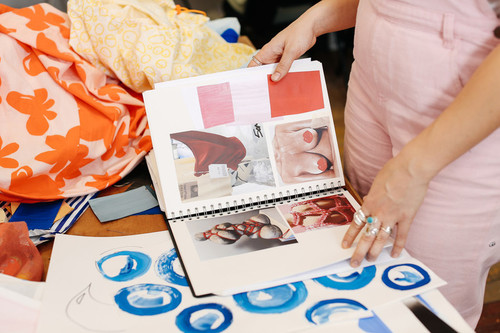In preparation for a spotlight on Extended Project Qualification (EPQ) on 30 November, we spoke to Joe Scotland, EPQ tutor at The Brentwood School about the importance of this qualification and why they enjoy delivering it. Find out more in the Q&A below.
This spotlight session has been designed for centres that do not currently deliver UAL Level 3 Extended Project Qualification or those who are looking to expand their provision.
If you have any questions about the event, please email events.awarding@arts.ac.uk.
What do you enjoy about delivering UAL Extended Project Qualification?
The thing I enjoy most about the UAL EPQ is the open nature of the course. I am able to encourage students to follow personal areas of interest, develop skills that are new and challenging and help nurture their independent enquiry skills. The students' enthusiasm about their projects is infectious and I love helping them to realise their creative ability.
UAL Awarding Body qualifications are flexible, in what ways does this benefit students?
In the case of the UAL EPQ, the level of flexibility has provided students with an opportunity to work together on large group projects where they can explore in more depth particular roles and responsibilities. The ability to work effectively in a group is such an important skill which will benefit students in their chosen careers. UAL EPQ projects offer a valuable window into the real life working environment of creative companies.
As a teacher of UAL's Extended Project Qualification, what sets it apart from other similar qualifications? In what ways does it allow you to explore your role as an educator?
I feel that the UAL EPQ allows me to explore the facilitator aspects of my role as a teacher, specifically in regards to encouraging independent skill development. As the students choose their own areas of interest to investigate, the flow of the course is very different from courses with more structured content. You never quite know what the students are going to bring to the sessions, and that is exciting.
The UAL Extended Project Qualification trains students to have a diverse skillset. How does it support students to figure out what pathway they want to take after studying (e.g., more education or into work)?
The diversity of skills students have the opportunity to acquire over the course of the UAL EPQ are far reaching. By the end of the course, students are more confident in; making decisions independently, being flexible in their approach to problems, asking questions of themselves, seeking advice when needed and presenting their ideas clearly. These skills are key when making crucial decisions like what pathway to take next.
What type of careers do students studying this qualification go on to have?
This is our first year delivering the UAL EPQ and it is my hope that it will widen the opportunities of our students to include creative education paths and careers. At present, all of our 6th form students (170) take an EPQ course so the next step pathways are diverse, from Russell Group universities to career apprenticeships.

